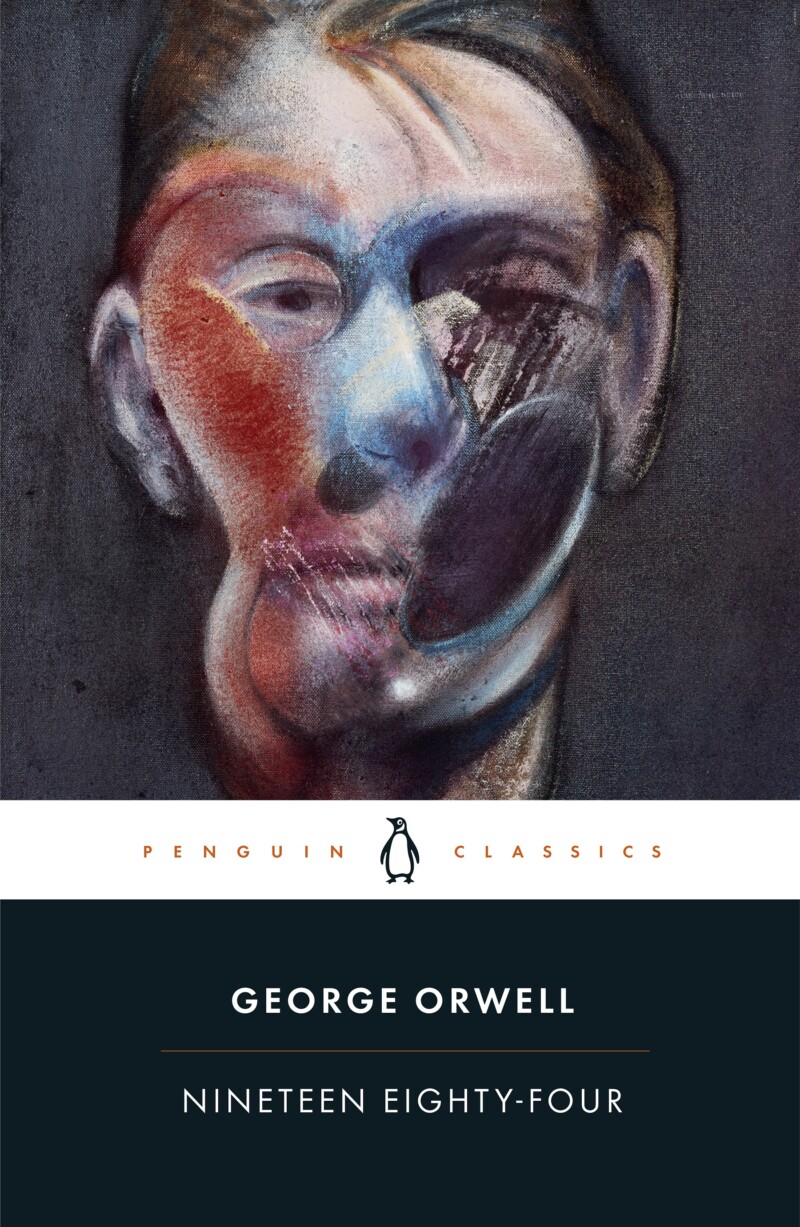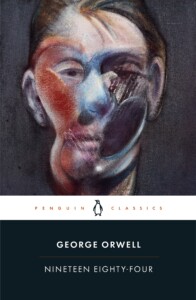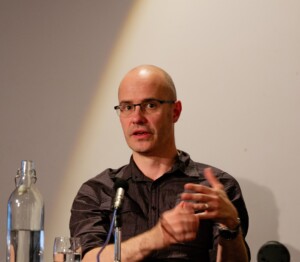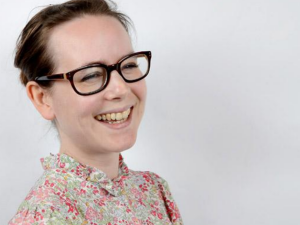Reading Nineteen Eighty-Four at HMP Ashfield David Kendall

Share this
I’ve run the monthly reading group at HMP Ashfield for three years.
Generally, the books are chosen from ideas put forward by myself and the other members of the group, and/or freebies from the charity Prison Reading Groups. In October 2019 we chose George Orwell’s Nineteen Eighty-Four as we had Dorian Lynskey – author of The Ministry of Truth, an examination into what had influenced the writing of the novel – coming to the prison as part of our arts festival Ashfest the following month. Our copies of the book came from Bristol’s Festival of Ideas as part of a city-wide read linked to the novel’s 70th anniversary.
Several members of the reading group attended the event with Lynskey and had been keen to offer their views on what Nineteen Eighty-Four had meant to them at various times of their lives.
Not everyone in the group was as enthusiastic to attend the subsequent session in which we discussed the book. Of those who came, some had been unable to complete it, but others felt it was worth the effort, even though it was a difficult read. Among the comments made were.
- John: I couldn’t read past about twenty pages. It was just so depressing. Last month’s book (7 Deaths of Evelyn Hardcastle) I raced through. But not this.
- Xav: I thought it was brilliant. It’s the first book I’ve read that’s been called a ‘classic’ that I thought deserved the title but I had to push myself through. Each time I had to pick it up and make myself read. It’s a great book but hard reading.
- Chris: It’s not easy. You really feel like you’ve experienced something once you’ve finished.
- Steve: I’d read it recently so I didn’t reread it for this. … But I think Nineteen Eighty-Four is really important. … Everyone in here should read this. I think we get something out of it that other people don’t. Especially in a prison like this.
In the Lynskey event we learnt that Orwell had probably only spent one night in a cell in his life and much of Winston’s experience of prison comes from his friend, Arthur Koestler’s, long and multiple internment and incarcerations during the war. His last being at Pentonville. The irony of finally reaching safety and being but in Pentonville was appreciated by the audience.
(Koestler established an award scheme for arts in the criminal justice system in 1962. This was subsequently formalised into a charitable trust. Over 2,000 awards are given each year through Koestler Arts and there is an annual exhibition on London’s Southbank.)
One participant in our reading group session said: ‘I think we can all relate to the pressure O’Brien puts on Winston to think 2 and 2 equals 5.’ There were nods of agreement.
We discussed whether there was any room left for hope at ending of the novel. Among comments made during the discussion were:
- Chris: Of course. The fact Winston and Julia are in love. That gives us hope.
- Steve: To be fair I saw it as a kind of Romeo and Juliet. Not gangs or anything but lovers torn apart.
- Michael: Hardly. I’m not going to repeat what he wants to do to her at the start but it’s not romantic. And she betrays him.
- Frank: But betrayal seems to be accepted by them both.
- Chris: Yes, I don’t think that’s important.
- Steve: They knew that would happen.
- Chris: And still they loved each other.
It comes down to hope. Always hope. Was there a sliver left at the end? 2 + 2 = ? Was this simply a misprint, or a deliberate rent in the reality of the book? Nobody felt that ‘hope lies with the proles’. If there was hope we felt it lay in an individual’s capacity for love and truth. To remain vigilant against those with opposing truths, and yet at the same time admit our own truths should be challenged.
Prisoners feel Nineteen Eighty-Four at a different level to those who can walk through the gates. It is felt at a physical level. To be told when to move. Where to move. To have your food choice limited. Communication. The men have access to more food than Winston but not, obviously, his gin. They have a library – every book is assessed for its potential to harm. No GRR Martin’s Song of Ice and Fire. It was allowed, and then it was gone.
Does the human spirit that Orwell valued so much survive at the end of Nineteen Eighty-Four?
- Frank: No
- Michael: No
- Chris: I disagree. That fact they fell in love at all beats the system.
- Frank: But at the end all he loves is Big Brother.
- Steve: There is that.
(All names of those in the group have been changed.)


